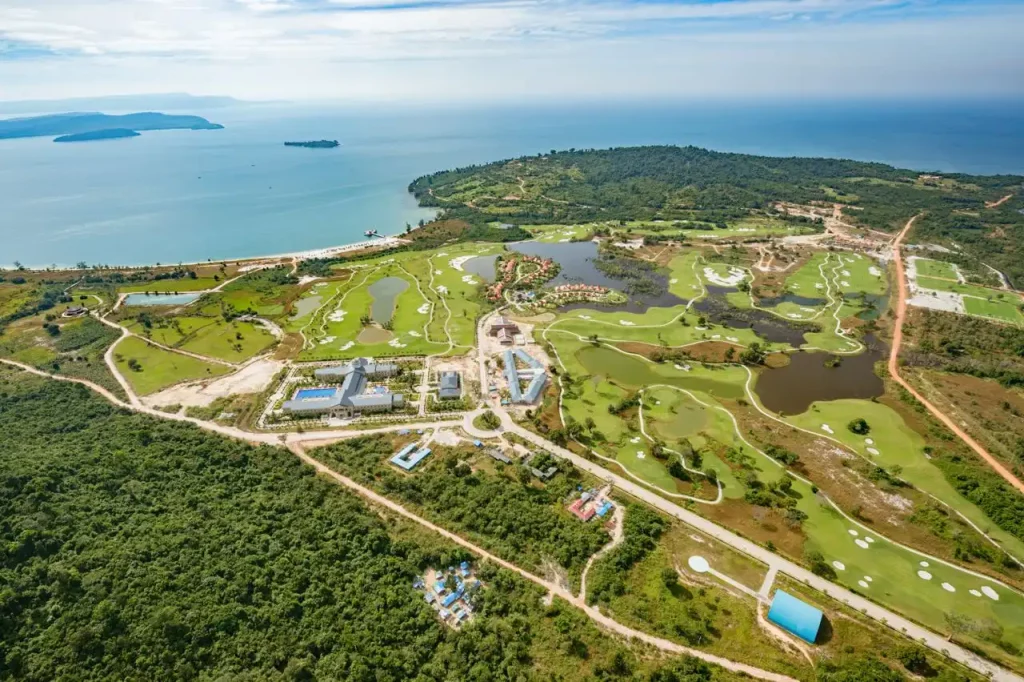The announcement by Cambodia’s leadership that it is planning to halt the expansion of gambling within the country could likely be a bid to cozy up to its main regional friend China and get visitation back. Gaming expert Ben Lee points out in this week’s Under the Scope how the nation is moving towards a regulated gaming environment, weeding out the bad players and moving forward with a solid framework potentially in the second half of this year.
Despite enjoying a heady period of online gaming, which drew swarms of Chinese investment, Cambodia has outlawed the practice, and it’s been cracking down on those attempting to continue it.

“This could be China’s way of putting as much pressure as they can on Cambodia to curb its online gaming industry,” notes Lee of the recent announcements, reiterating that the online side is already illegal in the country.
And Cambodia is making good on its promise, with reports of nearly 500 people arrested in raids linked to online gambling and scams within just the first two months of the year.
But the statements by the nation’s Prime Minister Hun Manet also imply further oversight of the land-based industry, with implications that the nation would not only refrain from issuing new land-based gaming licenses but could also retract those already issued.
Cambodia has been slow to implement comprehensive casino legislation, only applying its ‘Law on the Management of Commercial Gambling’ (LMCG) in November of 2020.
This gave rise to the Commercial Gambling Committee of Cambodia (CGCC) – an 11-member body comprised of ministry and state officials, overseen by the Ministry of Economy and Finance.
Streamline and improve
IGamiX’s Managing Partner notes that the CGCC has since appointed an independent advisor to up-the-ante and streamline Cambodia’s gaming regime. This could result in changes to the gaming rules, with land-based casinos licenses likely to have a “uniform investment” and new rules to examine “the due diligence of all of the various participants in the gaming industry – be they casino operators, junket operators and maybe even the staff”.
Smaller border casinos will definitely be caught up in the shift, and Phnom Penh monopoly-gaming license holder NagaCorp can’t avoid being swept up in the wave.

Lee notes that pre-COVID, “junkets were the biggest driver of VIP revenue for Naga”, and in recent statements to AGB, NagaCorp Chairman Timothy McNally noted that the group was working on a “gradual” come back, focusing on the “local market” – noting that times have changed significantly.
With the shuttering of most junkets in Macau and the regional shift towards a more mass market, attracting the clientele – Chinese or otherwise, will be essential for operators.
Under the 2020 licensing framework, locals are prohibited from gambling in casinos in Cambodia, however an anonymous local observer pointed out that locals continue to gamble at gaming properties – whether in Phnom Penh or elsewhere, avoiding harsher penalties by a quick ‘gift’ to whoever catches them. And for VIP rooms, oversight is also lax, with slightly larger ‘gifts’ being applied to skirt consequences.
All of this could see a shift under the CGCC’s new efforts, and the country’s need to be seen favorably by China and allow its citizens to travel freely to the nation.
IGamiX’s Managing Partner notes that Chinese tourism has been even slower to return to Cambodia’s shores post-COVID, reaching around 24 percent of 2019 levels last year, compared to high-30s for places such as Malaysia, Singapore and Thailand.
Investor sentiment
The CGCC’s and the government’s attempts to clean up the industry are already having impacts, with some international players choosing to focus their resources elsewhere, rather than face an evolving environment.
Hong Kong Stock Exchange-listed Century Entertainment announced in January that it was terminating its agreement to operate gaming tables in Dara Sakor – the highly-debated Chinese-backed investment zone aimed at being an entertainment, and gaming, hub.

But not all is in the doldrums, with Cambodia able to remove itself from the Financial Action Task Force’s grey list last year, something even the Philippines has been unable to achieve.
This, plus a solid regulatory and oversight framework, could pave the way for more positive investor sentiment. And if China decides to reopen the floodgates, Cambodia could stand to benefit not only from the return of punters, but their fiscal proclivity – potentially reviving a property market which has been “in the doldrums” since the Chinese exodus, notes Lee.
And maybe, just maybe, if the industry can make itself as squeaky clean as possible, and learn from the lessons of the Philippines, it could again approach the idea of online gaming – a revenue stream which could provide a much-needed boost to a country still on the mend.











